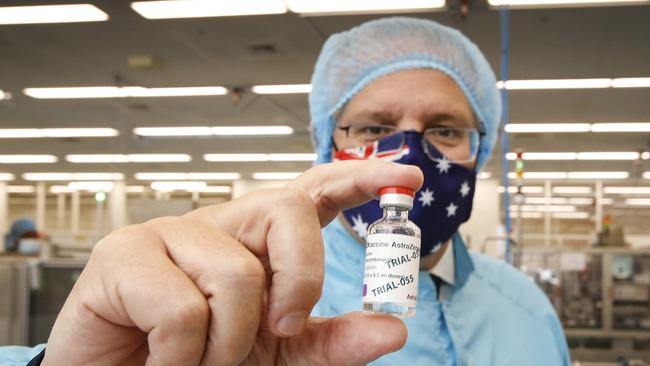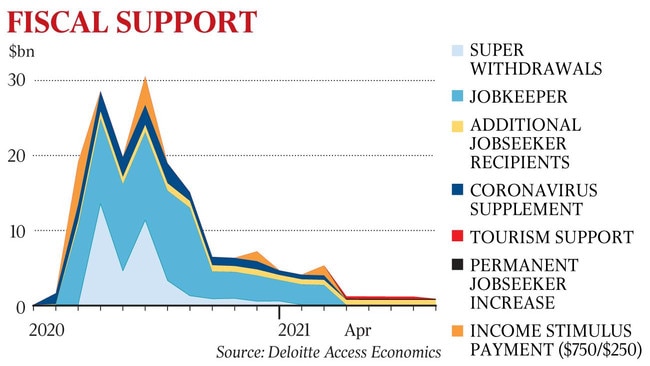Economy recovery on track despite rollout delay
Returning to pre-pandemic life by Christmas is off the table after the recent vaccine setback, but it won’t be enough to derail the national economic recovery.

A further delay to the national vaccine rollout means most Australians will not enjoy a return to pre-COVID normality until early next year, but economists are confident the latest news around the AstraZeneca jab will not be enough to meaningfully “shift the dial” on the pace of the recovery.
Businesses reliant on the reopening of international borders, however, now face an even more uncertain future and will need further support if they are to remain viable, economists said.
Deloitte Access Economics partner Chris Richardson said certain segments of the economy would “need more sticky tape” to hold them together. He said the May budget would have to offer targeted support around international border-related jobs that were now “at greater risk”.
International travel may not return to normal operation until 2024, with some form of quarantine likely to persist into 2022, Mr Richardson said.
Ernst & Young chief economist Jo Masters said the latest setback with AstraZeneca meant “snap lockdowns and domestic border closures remain a feature of day-to-day lives”.
International borders would stay closed for longer, which would have knock-on effects for tourists, international students and migration — “all important drivers of economic activity”.
The already delayed rollout timetable suffered a major blow on Thursday night after Scott Morrison announced that the AstraZeneca vaccine would no longer be given en masse to Australians under the age of 50 years.
Despite this, Mr Richardson on Sunday stuck by his firm’s latest quarterly forecasts, which showed the economy growing by 4.9 per cent in 2021 after contracting by more than 1 per cent in 2020.

The estimate was meaningfully above the IMF’s latest world economic outlook, which predicted Australia’s GDP would expand by 4.5 per cent this year.
Mr Richardson did say the latest vaccine rollout hiccup “increases the risks” around his estimates. “Globally and in Australia, we’ve gone through a phase where livelihoods were carried by taxpayers, and we will go into a phase where livelihoods are protected by vaccines,” he said.
“Because the vaccine rollout is that bit slower, you will probably see the occasional community case of COVID-19, and you will see the occasional lockdown and closures as a result.”
Mr Richardson said he had expected most households and businesses would be functioning as normal by Christmas, but events of recent days had made that more of a story for early 2022. “We are stuck where we are for a bit longer than we like — but don’t underestimate where we are.”
Official labour force statistics to be released this week should show the economy added more jobs in March, and the unemployment rate dropped to 5.7 per cent.
Mr Richardson said he expected the stimulus-driven “bump” in growth coming out of the COVID recession would now give way to a “grind”, and forecast unemployment would end the year at 5.6 per cent, and be at 5.3 per cent 12 months later.
CBA head of Australian economics Gareth Aird said the vaccine setback “does not shift the dial for domestic demand in 2021, provided outbreaks of COVID-19 are traced and well contained and significant restrictions are not reimposed for an extended period … We acknowledge the risks of COVID-related disruptions to economic activity have risen.”
Ms Master said “with very low case numbers and still substantial government support, the economy is likely to continue its recovery path”.
At a current pace of 43,000 vaccinations a day, only half the population will be vaccinated by the end of this year, Westpac economists estimate.
In contrast, the US and UK will have completed their programs by June and July, respectively. The eurozone will have vaccinated the continent’s population by the end of 2021, on Westpac projections, based on the average vaccination rate over the past seven days.



To join the conversation, please log in. Don't have an account? Register
Join the conversation, you are commenting as Logout